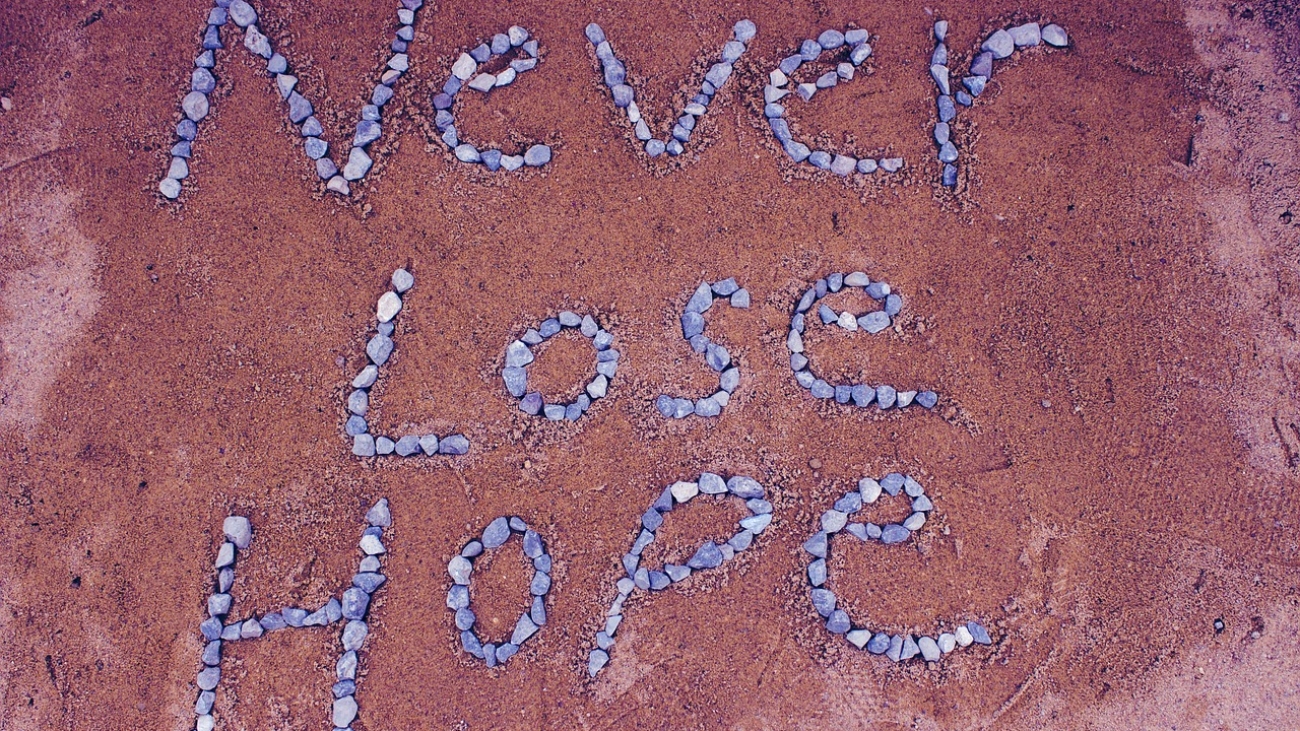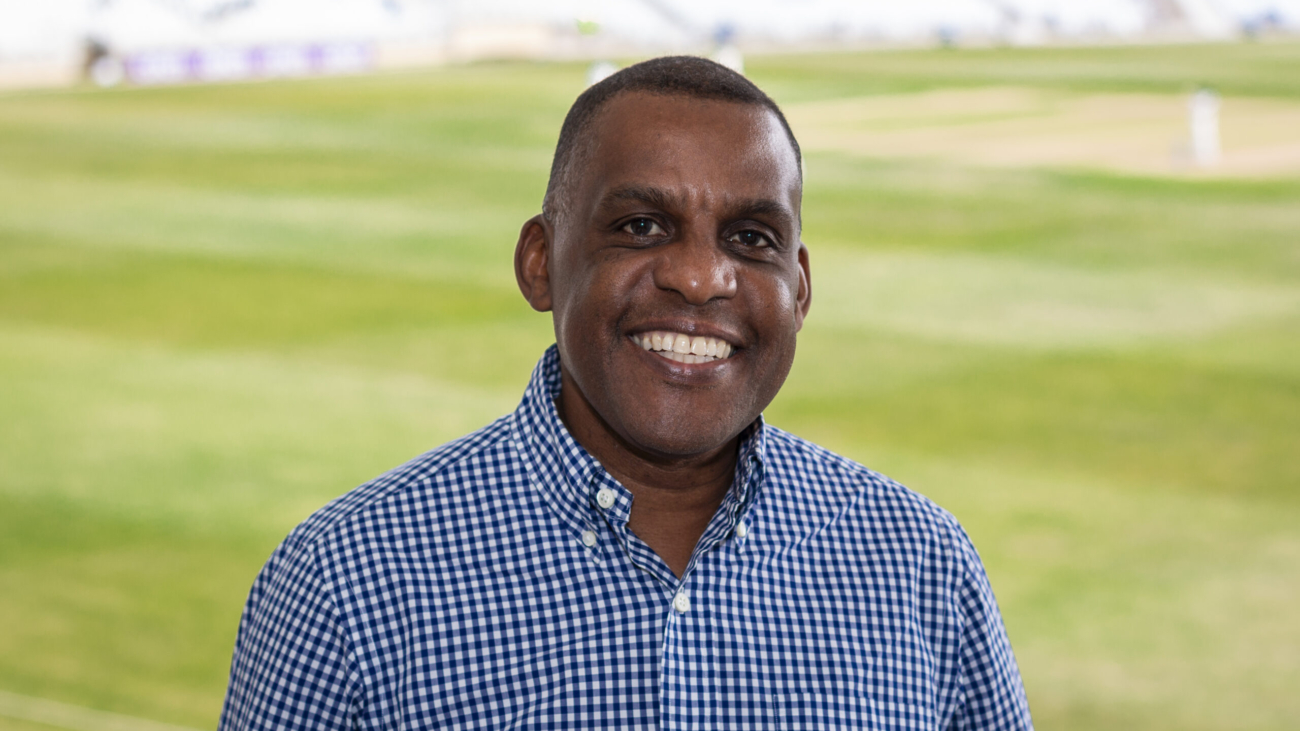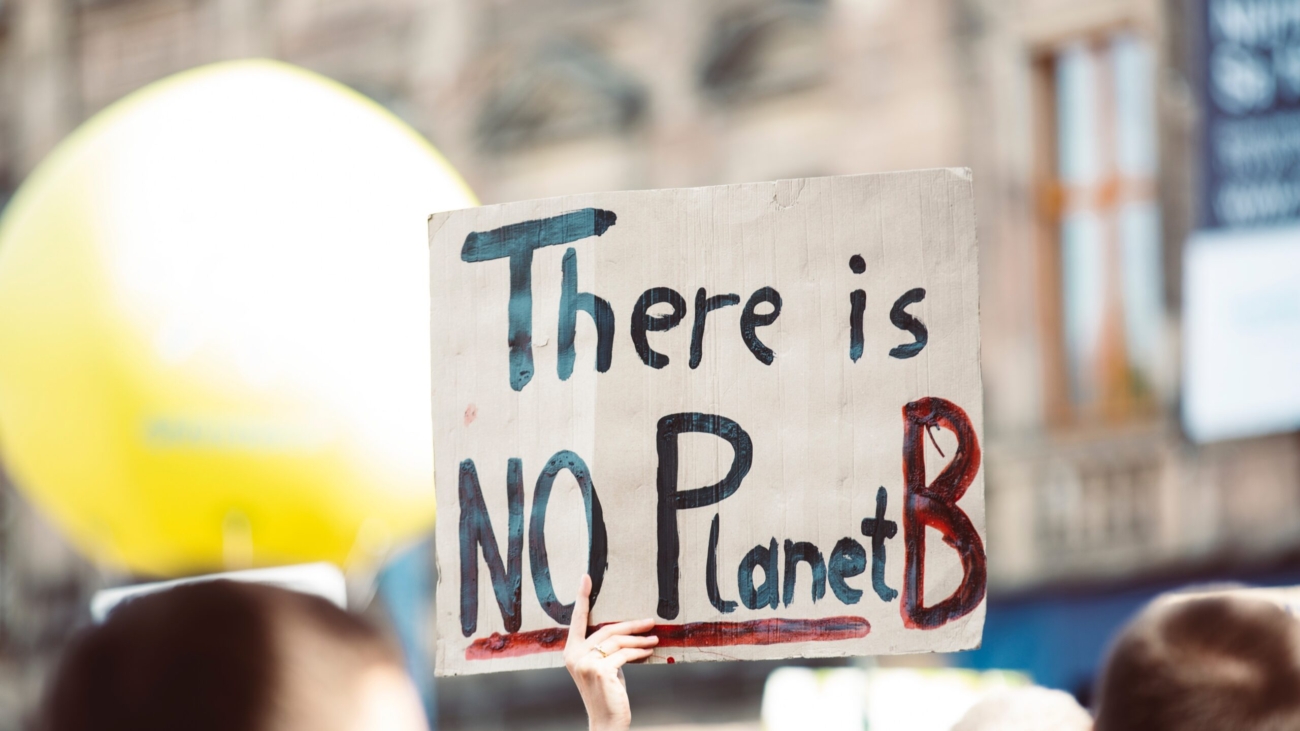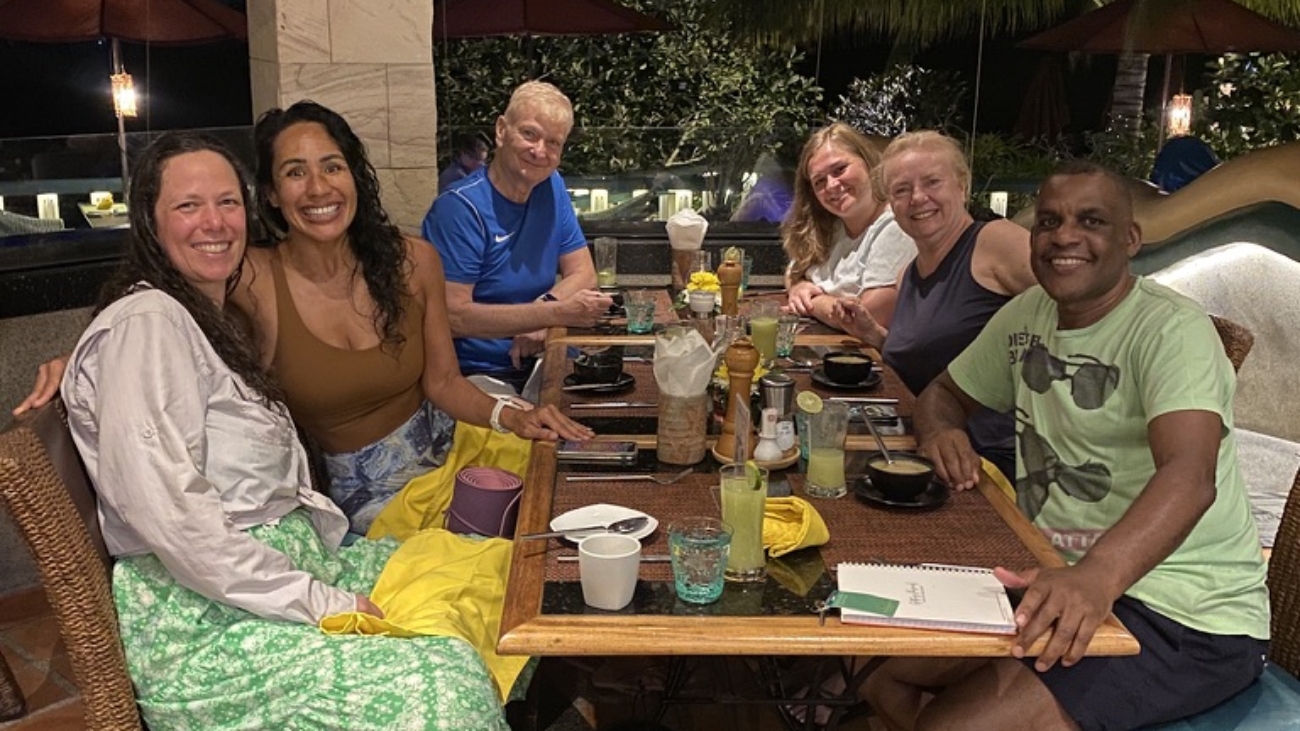Breaking the Silence on Mental Health
 As we navigate through March, the narratives around our economy and personal wellbeing are becoming increasingly intertwined. Recent discussions have highlighted that we’ve entered a recession, a fact that many of us had sensed long before it was officially acknowledged. The evidence lies in the everyday – our shopping bags offer fewer items for more money, fuel pumps take longer to fill our tanks without reaching full, and the cost of leisure activities, from a night at the theatre to a simple gym session, all seem to be on an upward trajectory.
As we navigate through March, the narratives around our economy and personal wellbeing are becoming increasingly intertwined. Recent discussions have highlighted that we’ve entered a recession, a fact that many of us had sensed long before it was officially acknowledged. The evidence lies in the everyday – our shopping bags offer fewer items for more money, fuel pumps take longer to fill our tanks without reaching full, and the cost of leisure activities, from a night at the theatre to a simple gym session, all seem to be on an upward trajectory.
This financial strain inevitably impacts our mental health, a topic that, thanks to social media, is gaining attention. Posts about mental health resonate with many, attracting likes and comments, but it begs the question: Are we taking meaningful action beyond the digital gestures of support?
The Shift in Conversations
At my local Nuffield gym, I’ve observed a significant conversation shift. Where once the latest football scores of Chesterfield dominated the talk, discussions about mental health and wellbeing are now becoming a hot topic. However, these conversations often surface only when individuals are in crisis, highlighting a worrying trend towards reactive rather than proactive mental health support.
Taking Action for Mental Health
It’s crucial not only to talk about mental health but to take concrete steps towards improving it. Here are six resources for support:
- Hub of Hope: A comprehensive database for local mental health support.
- Samaritans: Immediate support for anyone in emotional distress.
- Rethink Mental Health: Resources and advocacy for those affected by mental illness.
- Mind: Information and support for mental health issues.
- Text Shout: A 24/7 text service for people in crisis.
- Mental Health Foundation: Promotes understanding and support for mental health
The Power of Mental Health First Aid
Mental health first aid training is a life-saving skill, equipping individuals with the knowledge to support those experiencing a mental health crisis. This training is vital, teaching us to identify, understand, and respond to signs of mental illnesses and substance use disorders. It’s about creating a society where mental health is treated with the same urgency as physical health.
Why Mental Health First Aid Matters
For employers, investing in mental health first aid training is not just about compliance; it’s about creating a culture of empathy and understanding. This training fosters a supportive atmosphere in today’s hybrid and office working environments, ensuring employees feel seen, heard, and supported.
Let’s Be the Change
In emphasising the significance of mental health, notable figures have lent their voices to raise awareness. Among them, Prince William has poignantly remarked, “Mental health is just as important as physical health,” underlining the essential nature of addressing mental wellbeing with the same urgency and importance as physical health. This statement from a global figure not only highlights the universality of mental health issues but also encourages a more open and supportive dialogue around the topic.
I invite you to join me in breaking down the barriers surrounding mental health. By training in mental health first aid, you’re not just helping others but fostering a more compassionate society.
Mental health matters as much as physical health. It’s time to prioritise both and make a difference. Please get in touch with us directly for details on upcoming mental health first aid courses throughout 2024, for group bookings send me an email. Let’s break the silence and support each other in every way possible.
Mike Lawrence: Health & Wellbeing Enthusiast and Mental Health Advocate
Hi, I’m Mike Lawrence, and I’m dedicated to enhancing mental health and wellbeing. After overcoming significant health challenges, including brain surgery, I’ve committed to a journey of self-improvement and helping others. My adventures range from thrilling skydives for charity to transformative travels in Thailand. I share insights from my experiences and key learnings from impactful audiobooks. Join me in exploring holistic health and wellbeing, and let’s embrace life’s adventures together!
Feel free to connect with me through email at hello@mikelawrence.co.uk or Linkedin. For more detailed insights and stories from Mike, click here to read the latest blogs.



 A recent article from
A recent article from 
 In the relentless pursuit of balancing work and life, the concept of a four-day workweek has transitioned from a distant dream to a tangible reality for many. A year after the world’s most extensive trial of a four-day workweek concluded in the UK, the results have sparked interest and led to a significant shift in how work is perceived and conducted. With over 60 UK organisations taking the bold step to reduce work hours to 80% for the same pay—under the promise of maintaining productivity—the outcomes have been overwhelmingly positive.
In the relentless pursuit of balancing work and life, the concept of a four-day workweek has transitioned from a distant dream to a tangible reality for many. A year after the world’s most extensive trial of a four-day workweek concluded in the UK, the results have sparked interest and led to a significant shift in how work is perceived and conducted. With over 60 UK organisations taking the bold step to reduce work hours to 80% for the same pay—under the promise of maintaining productivity—the outcomes have been overwhelmingly positive.

 In an age where uncertainty seems to be the only certainty, the shadow of the post-COVID era looms large, weaving a complex tapestry of emotional, psychological, and societal challenges. This pervasive uncertainty has become a central theme in our lives, sparking discussions in various settings—from Mental Health First Aid (MHFA)
In an age where uncertainty seems to be the only certainty, the shadow of the post-COVID era looms large, weaving a complex tapestry of emotional, psychological, and societal challenges. This pervasive uncertainty has become a central theme in our lives, sparking discussions in various settings—from Mental Health First Aid (MHFA) 
 My retreat experiences around the world have been nothing short of transformative, each offering its unique blend of relaxation, self-discovery, and connection with nature. Let me take you on a journey through these retreats and share how they’ve reshaped my perspective on self-care and mental well-being.
My retreat experiences around the world have been nothing short of transformative, each offering its unique blend of relaxation, self-discovery, and connection with nature. Let me take you on a journey through these retreats and share how they’ve reshaped my perspective on self-care and mental well-being. Sri Lanka offered an immersive experience in Ayurveda, yoga, and connecting with nature. The retreat centred around holistic wellness, with treatments and oils meticulously tailored for rejuvenation. Gong baths provided a unique auditory meditation experience, resonating with the natural surroundings. A standout memory was spotting turtles on the nearby beach, a reminder of the serenity and beauty of nature. However, the most challenging yet rewarding part was the all-day purge or detox. While not the highlight in terms of comfort, it was a crucial component of the cleansing process, contributing significantly to the overall wellness experience.
Sri Lanka offered an immersive experience in Ayurveda, yoga, and connecting with nature. The retreat centred around holistic wellness, with treatments and oils meticulously tailored for rejuvenation. Gong baths provided a unique auditory meditation experience, resonating with the natural surroundings. A standout memory was spotting turtles on the nearby beach, a reminder of the serenity and beauty of nature. However, the most challenging yet rewarding part was the all-day purge or detox. While not the highlight in terms of comfort, it was a crucial component of the cleansing process, contributing significantly to the overall wellness experience. My time in Thailand was a shorter version of the Sri Lankan experience, with a strong focus on Ayurveda treatments, especially the use of therapeutic oils. The retreat emphasised the importance of holistic healing, combining ancient practices with the tranquillity of the surroundings. The oils used in the treatments were vital for physical wellness and mental and emotional rejuvenation.
My time in Thailand was a shorter version of the Sri Lankan experience, with a strong focus on Ayurveda treatments, especially the use of therapeutic oils. The retreat emphasised the importance of holistic healing, combining ancient practices with the tranquillity of the surroundings. The oils used in the treatments were vital for physical wellness and mental and emotional rejuvenation.
 Navigating the complexities of mental health is a journey that transforms not just the individual but also the communities around them. Our recent Mental Health First Aid (MHFA) course attendees have embarked on this transformative journey, and their experiences are a beacon of inspiration for all of us. By diving deep into their stories, we uncover the profound impact that understanding, empathy, and support can have on mental well-being. Let’s explore how our courses have empowered attendees and how you can join this movement towards a more supportive world.
Navigating the complexities of mental health is a journey that transforms not just the individual but also the communities around them. Our recent Mental Health First Aid (MHFA) course attendees have embarked on this transformative journey, and their experiences are a beacon of inspiration for all of us. By diving deep into their stories, we uncover the profound impact that understanding, empathy, and support can have on mental well-being. Let’s explore how our courses have empowered attendees and how you can join this movement towards a more supportive world.
 As we embrace the festive cheer of December, it’s crucial to remember the importance of balance, especially regarding our wellbeing. 🎄✨
As we embrace the festive cheer of December, it’s crucial to remember the importance of balance, especially regarding our wellbeing. 🎄✨
 One critical factor contributing to men’s mental health struggles is the current economic landscape in the UK. The rising cost of living and job insecurity have created a significant gap between personal income and expenditure. Men, who may have traditionally been seen as primary breadwinners, are feeling the strain as their earning potential erodes.
One critical factor contributing to men’s mental health struggles is the current economic landscape in the UK. The rising cost of living and job insecurity have created a significant gap between personal income and expenditure. Men, who may have traditionally been seen as primary breadwinners, are feeling the strain as their earning potential erodes. The positive shift in men seeking support extends to mental health first aid training courses. These courses aim to equip individuals with the skills to help others in distress. For the first time, I have witnessed more men than women in attendance, reflecting changing attitudes towards mental health within society.
The positive shift in men seeking support extends to mental health first aid training courses. These courses aim to equip individuals with the skills to help others in distress. For the first time, I have witnessed more men than women in attendance, reflecting changing attitudes towards mental health within society.

 As the festive lights of Christmas begin to twinkle across the UK, the joy of the season is tinged with the sobering reality of a challenging economic climate. The United Kingdom, like many parts of the world, is grappling with a significant rise in the cost of living. In October 2023, the inflation rate dipped to 4.6%, a decrease from the 6.7% recorded in the preceding month.
As the festive lights of Christmas begin to twinkle across the UK, the joy of the season is tinged with the sobering reality of a challenging economic climate. The United Kingdom, like many parts of the world, is grappling with a significant rise in the cost of living. In October 2023, the inflation rate dipped to 4.6%, a decrease from the 6.7% recorded in the preceding month. 











